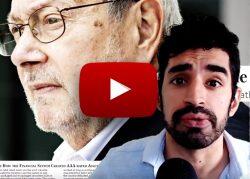Divvy Homes’ version of the American dream has produced less-than-ideal results for some of its customers.
Tenants in the rent-to-own firm’s program tell of inadequate repairs and a rising threat of eviction, the New York Times reported. Divvy touted itself as one that makes it easier for renters to graduate into homeownership, but the model, paired with rising inflation, instead saddles some with costly monthly bills that tenants have struggled to pay, leading to eviction filings.
The San Francisco-based firm’s 7,000 homes across 19 markets were valued at more than $1.7 billion as recently as two years ago. Divvy’s unique lane in the rent-to-own space involves requiring customers to put away part of their paycheck toward a down payment.
The Divvy model is purportedly geared to helping customers eventually obtain a mortgage. The money put away towards the down payment is refunded to those that don’t buy their home, outside of a fee equivalent to 2 percent of what Divvy paid to initially purchase the home.
A drawback of the savings plan, however, is that renters are forced to cough up more on a monthly basis than customers with other rent-to-own customers. Payments have spiked even higher because of inflation.
Divvy said evictions are a last resort for the company. In the Atlanta area, there have already been more eviction actions this year than all of 2022, according to the Private Equity Stakeholder Project. Divvy said many filings don’t result in enforced evictions, but a growing portfolio is leading to an increase in eviction filings, at least in Atlanta.
Add a slow response to needed repairs and customers’ frustrations grow more palpable.
In response, Divvy recently created a new system to prioritize maintenance requests, including a 24-hour hotline. The company also said it would wave one 5 percent late fee a year for a delinquent payment.
Read more



Still, the model doesn’t bring about the desired achievement for a majority of Divvy’s customers, according to the company, as roughly 47 percent of its renters become homeowners.
However, an attorney with the National Consumer Law Center, said in Senate testimony last month the company’s “success rate” is ahead of its rent-to-own competitors, but still represents a high rate of failure.
The proptech company has dealt with its own internal dilemmas in the last year, laying off 12 percent of its staff in September due to inflation and elevated mortgage rates. The company’s investors include Andreessen Horowitz, Tiger Global Management and Caffeinated Capital.
— Holden Walter-Warner
